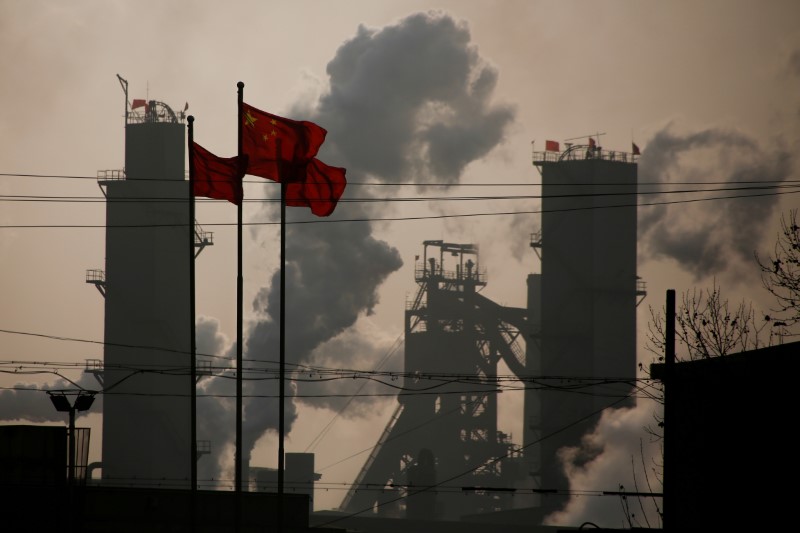BEIJING (Reuters) - China's factory output and retail sales grew at a steady pace in May but investment slowed, reinforcing views that the world's second-largest economy will soon start to lose some momentum as lending costs rise and the property market cools.
Global concerns about China have resurfaced since Moody's Investors Service downgraded its credit ratings last month, saying it expects the country's financial strength will erode in coming years as growth slows and debt continues to rise.
But most analysts predict only a gradual loss of momentum in coming months, especially as the government is keen to maintain economic and financial market stability ahead of a major political leadership reshuffle in autumn.
May data released on Wednesday appeared to reinforce that consensus view, with still solid factory output and retail sales, and only a slight slowdown in fixed asset investment.
However, property investment and construction showed a much sharper deceleration after a slew of government cooling measures in recent months.
Factory output rose 6.5 percent in May from a year earlier, statistics bureau data showed on Wednesday.
Analysts polled by Reuters had predicted factory output would grow 6.3 percent in May, easing slightly from 6.5 percent in April.
But, for now, manufacturing activity still appeared to be well supported by a year-long construction boom fueled by a government infrastructure spree and a heated property market. Sales of excavating machines doubled in May from a year earlier, according to an industry website.
Fixed-asset investment growth slowed to 8.6 percent in the first five months of the year. It had been expected to slip to 8.8 percent from 8.9 percent in Jan-April.
Growth of private investment slowed slightly to 6.8 percent in January-May period from 6.9 percent in the first four months, the National Bureau of Statistics said, suggesting a slight weakening of the private sector's appetite to invest as small- and medium-sized private firms still face challenges in accessing financing.
Private investment accounts for about 60 percent of overall investment in China.
Retail sales were more upbeat, rising 10.7 percent in May from a year earlier, unchanged from April and above analysts' expectations for a 10.6 percent rise due to slowing auto sales.
China's vehicle sales in May posted their first back-to-back drop since 2015 after the government rolled back a tax incentive that had boosted car sales and output last year.
OUTLOOK FOR 2018 MORE WORRISOME?
Despite expectations the economy will lose some steam later this year, most economists believe Beijing should still easily meet its full-year growth target of 6.5 percent, coasting along after an unexpectedly strong first quarter.
But some China watchers are more worried about the risks of sharp slowdown next year.
A fund manager survey released by BofA Merrill Lynch this week found Chinese credit tightening ranked as the top tail risk for global investors in June for the second straight month, with nearly two-thirds of respondents saying tighter monetary policy will slow activity in the country but have little impact on global growth.
Early warning indicators of a financial crisis are already flashing red, economists at Nomura said in a note this week, echoing the warnings of others such as the Bank for International Settlements (BIS).

"Enjoy the party but stay close to the door," said Nomura, predicting growth will slow sharply to 6.2 percent in 2018 and adding there could be a greater risk of financial turmoil.